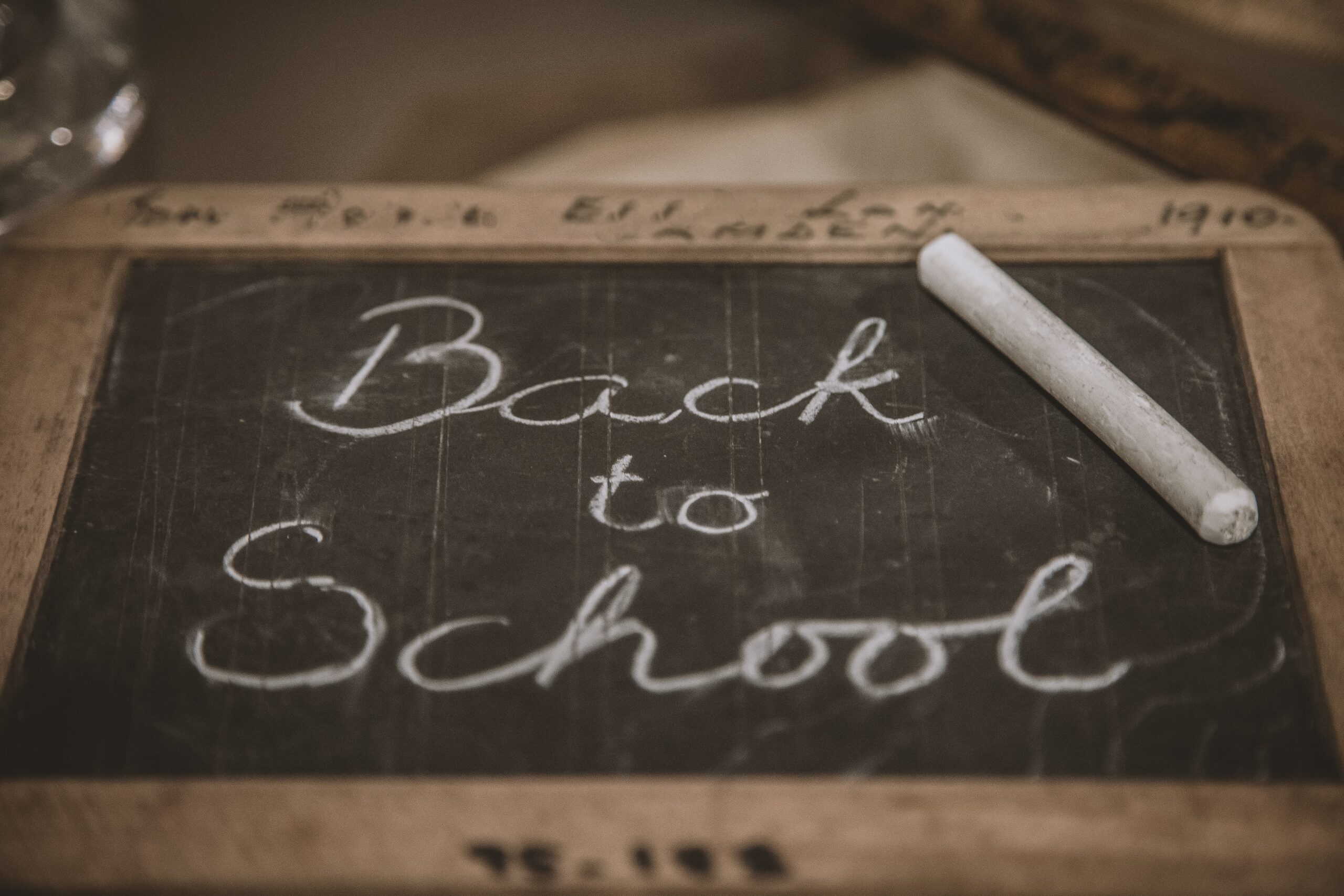Starting School in the Time of COVID-19
share to:

It’s August! Possibly already, possibly still. Definitely still 2020.

School is starting! For the first time as a therapist, I haven’t (yet) heard my teen clients upset about that fact. This year, however, school looks about as different as the airports looked after 9/11. Instead of security lines and more obvious security throughout the building, schools will have strict protocols, mask requirements, and significantly altered passing periods–the intensity of tension is about the same though, as well as the intention of cautious return to a form of normalcy (and both debated, which is not the point of this post).
So how do you explain this to your kids? How do you convey just how complicated all of this will continue to be?
You talk with them. You trust them to tell you what they need by asking them directly. This is a dialogue that you can build on throughout your relationship.
Focus
Whether your kids are going back to campus or their desk is in your kitchen, focus is going to be a new feat this year. For some students, focus can mean frequent breaks and getting some movement in (nothing extensive, just wiggling more than they can in their chair), for others it’s having something to do with their hands while listening, reading, or studying. Some new options can include having a side piece of paper with their choice of marker, pencil, etc. so they can doodle mindlessly. The point is to ask them what works for them, and if they aren’t sure, collaborate with them to find new ideas; then, help them practice them until they figure out which is the best. (Bonus!! Then they’re ready for when they’re done with high school and managing themselves!)
Homework

Who knows what homework is going to look like this year, but since it’s been a part of school for the last few decades, I’m betting it’ll be around. While much of what I just mentioned still applies, creating clear expectations and boundaries around what getting homework done means is more important than before since everyone is more stressed than usual (more on stress “management” in a minute). Consider creating a family expectation document that is posted where homework will get done. In that document, include what everyone needs from everyone else (quiet? Music, but no vocals? Parents close by to ask questions of, but not hovering?). Both the parent to student and the student to parent needs should be addressed– letting them get out the “I need you to not make me do homework” snarks out without reproach first– then collaborating on what homework productivity, breaks, and environment all look like so there is a base for understanding when conflict arises later.
That said, don’t write it in stone. If the same conflict comes up more than 3 or 4 times in a given period, that means something probably isn’t working and the list needs to be reevaluated, with mutual discussion on the problem areas primarily.
___________________________________________________________________________________________________
If music helps you / your student focus, check out the links here for music designed for maintaining a studious environment:
https://www.pandora.com/browse/music/activities/focus
https://www.youtube.com/results?search_query=music+to+study+and+concentrate
___________________________________________________________________________________________________
Stress management
I’ll echo what so many others have said: these are unprecedented times and we’re experiencing a collective trauma, and are more stressed on the whole than is typical.

Managing stress as school starts again is another collaborative effort. If your family hasn’t hit burn out yet, bravo and how have you done it?? Everyone needs a bit of time to “go to our own corners” and we also need connection. This is another time where it is critical to collaborate and find out what everyone is needing to manage their response to stress right now, and to keep it in check as school gets going. Does this mean family game night? Ordering pizza once a week? Water balloon fights on Friday evenings so the weekend can REALLY start? (Sunday nights work too, so the new week has a chance to start clean. Haha) Reading a book as a family? Once again: come up with a plan all together, write it down, reference it often, revisit as needed.
More seriously, give yourself (and your kids) a break. Maybe once the excitement to get back to school wears off, they have a day where they need to sleep in and miss first period. It’s not the end of the world. Mental health is part of physical health, and struggling to get up in the morning can be as debilitating as a migraine. Yes, get into a good sleep hygiene routine to reduce how often this happens, but don’t dismiss this or other signs that mental health is in a downturn (stay tuned for a specific blog on this soon!). That said, if it’s happening more than a few times per grading period, have your child see a therapist for a mental health check up (at Conquer & Bloom Katy Counseling, we see students as young as 12 years old). Therapists are trained in listening in specific ways as well as processing how stressors and the like are getting in the way of life.
Make sure you’re giving yourself space and grace to attend to your mental health.
This looks like taking time to journal, call a friend and vent, find a group to have fun with outside of being a parent, talking to a therapist. It also means not sweating it when you aren’t perfect, when you mess up, or when you can only do the bare minimum. We all have those days, you can pick it up again.
A major part of adjusting to school this year is going to be patience and curiosity on all sides. I believe that you and your family can build what you need for a successful new school year, and I’m here if part of that is reaching out for help.